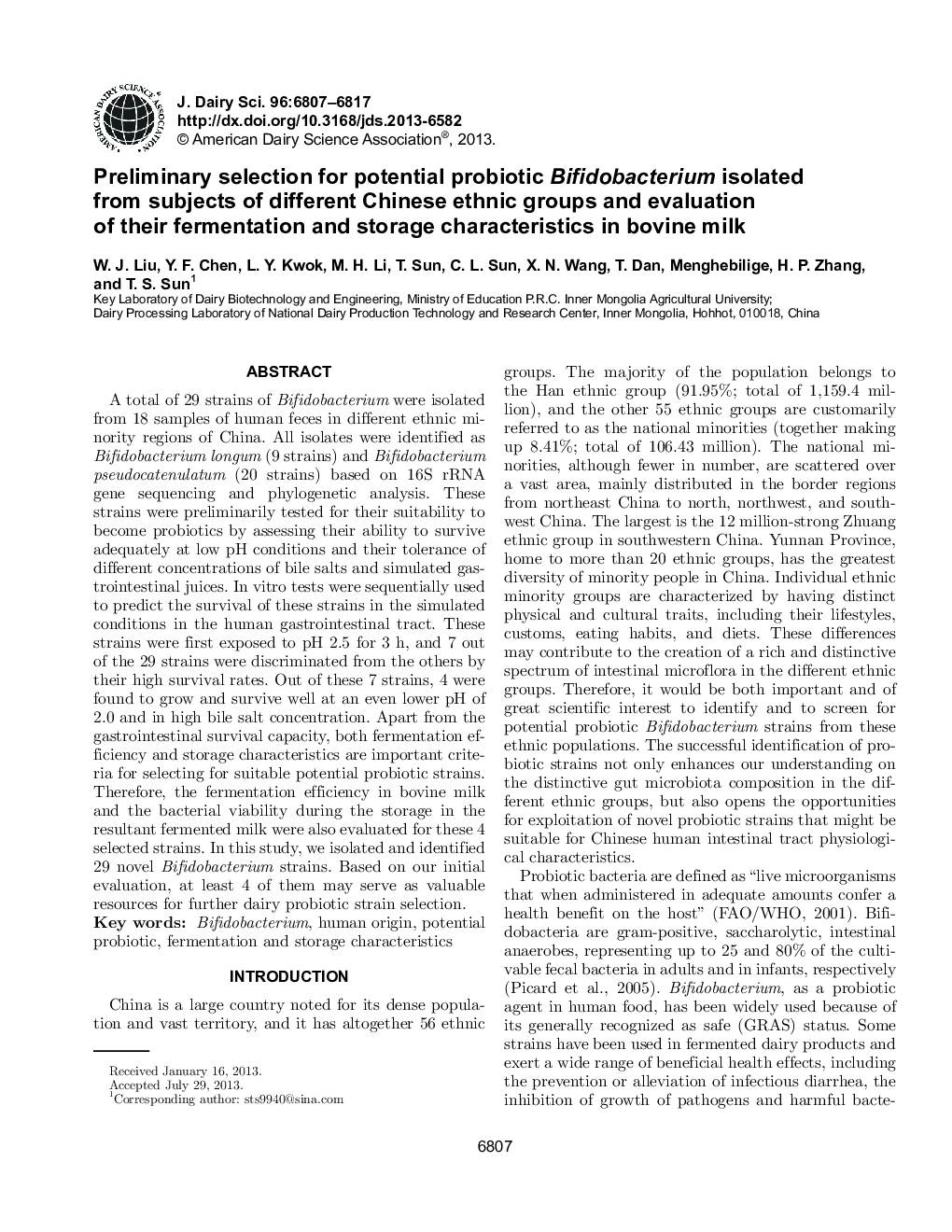| Article ID | Journal | Published Year | Pages | File Type |
|---|---|---|---|---|
| 10974982 | Journal of Dairy Science | 2013 | 11 Pages |
Abstract
A total of 29 strains of Bifidobacterium were isolated from 18 samples of human feces in different ethnic minority regions of China. All isolates were identified as Bifidobacterium longum (9 strains) and Bifidobacterium pseudocatenulatum (20 strains) based on 16S rRNA gene sequencing and phylogenetic analysis. These strains were preliminarily tested for their suitability to become probiotics by assessing their ability to survive adequately at low pH conditions and their tolerance of different concentrations of bile salts and simulated gastrointestinal juices. In vitro tests were sequentially used to predict the survival of these strains in the simulated conditions in the human gastrointestinal tract. These strains were first exposed to pH 2.5 for 3Â h, and 7 out of the 29 strains were discriminated from the others by their high survival rates. Out of these 7 strains, 4 were found to grow and survive well at an even lower pH of 2.0 and in high bile salt concentration. Apart from the gastrointestinal survival capacity, both fermentation efficiency and storage characteristics are important criteria for selecting for suitable potential probiotic strains. Therefore, the fermentation efficiency in bovine milk and the bacterial viability during the storage in the resultant fermented milk were also evaluated for these 4 selected strains. In this study, we isolated and identified 29 novel Bifidobacterium strains. Based on our initial evaluation, at least 4 of them may serve as valuable resources for further dairy probiotic strain selection.
Keywords
Related Topics
Life Sciences
Agricultural and Biological Sciences
Animal Science and Zoology
Authors
W.J. Liu, Y.F. Chen, L.Y. Kwok, M.H. Li, T. Sun, C.L. Sun, X.N. Wang, T. Dan, Menghebilige Menghebilige, H.P. Zhang, T.S. Sun,
